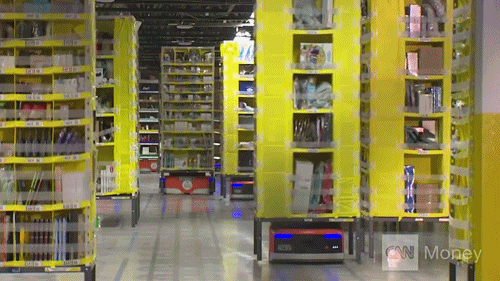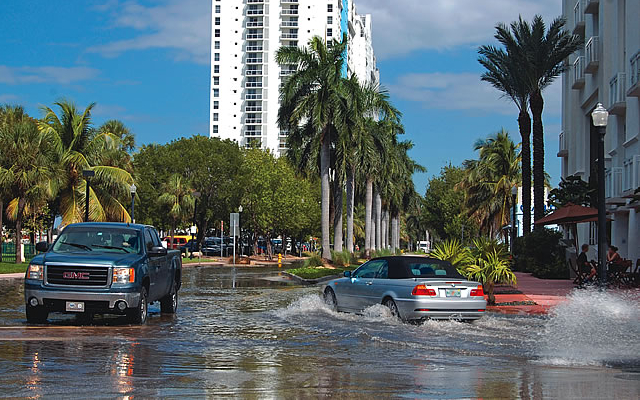When it comes to contemporary economics, the old William Goldman adage about Hollywood seems to apply: Nobody knows anything. There are hints and suspicions, but the evidence looks less than solid–it looks strange, in fact.
It would make sense that as machines can do more labor, making pizzas and building houses and driving trucks, there would less work for people unless new jobs emerged that were beyond the reach of robots. That’s what happened during the Industrial Revolution, but the past is not necessarily prologue. And it’s important to remember that not all the work has to be taken from our hands for things to fall apart, but rather just enough to over-stress the system.
Thing is, recent economic indicators are fuzzy at best about the impact of automation, not suggesting they’ve caused a productivity boom. Is that because the new tools I mentioned above are just becoming ascendant, or is there something else at play?
Excerpts follow from Derek Mead of the Atlantic and Paul Wiseman of the Associated Press, who each try to make sense of what’s happening.
From Mead’s “When Will Robots Take All the Jobs?“:
There is a contradiction in economic forecasting today that I’ve come to think of as the “robot paradox.” Some people seem confident that automation will take many workers’ jobs, yet they cannot point to evidence that technology has done anything in the last few years to replace work or add to productivity. Indeed, economic growth has been lackluster for the last few years, productivity growth is mysteriously moribund, and the last two years have been perhaps the best time this century for wage growth. This is not what the end of work looks like.
Since I have written repeatedly that policymakers should take the threat of automation seriously, I’ve developed several theories about the robot paradox. The first begins with humility: Maybe I’m wrong, and today’s statistics are evidence that machines will continue to supplement workers, as they have mostly done for the last few centuries, rather than erode overall employment. The second is that I’m right, just not yet: The economy ison the precipice of several wrenching changes—self-driving cars, machine-learning, and the continued digitization of shopping—that will replace hundreds of thousands of jobs in a future so near it is practically the edge of the present.
But the third theory is the most important, the most empirical, and yet the most overlooked. It is that the time to look for technological displacement of workers is not during recoveries, but rather during recessions. There is nothing to see now, but after the next downturn (or the recession after that), there will be.•
From Wiseman’s “Why Robots, Not Trade, Ae Behind So Many Factory Job Losses“:
WASHINGTON (AP) — Donald Trump blames Mexico and China for stealing millions of jobs from the United States.
He might want to bash the robots instead.
Despite the Republican presidential nominee’s charge that “we don’t make anything anymore,” manufacturing is still flourishing in America. Problem is, factories don’t need as many people as they used to because machines now do so much of the work.
America has lost more than 7 million factory jobs since manufacturing employment peaked in 1979. Yet American factory production, minus raw materials and some other costs, more than doubled over the same span to $1.91 trillion last year, according to the Commerce Department, which uses 2009 dollars to adjust for inflation. That’s a notch below the record set on the eve of the Great Recession in 2007. And it makes U.S. manufacturers No. 2 in the world behind China.
Trump and other critics are right that trade has claimed some American factory jobs, especially after China joined the World Trade Organization in 2001 and gained easier access to the U.S. market. And industries that have relied heavily on labor – like textile and furniture manufacturing – have lost jobs and production to low-wage foreign competition. U.S. textile production, for instance, is down 46 percent since 2000. And over that time, the textile industry has shed 366,000, or 62 percent, of its jobs in the United States.
But research shows that the automation of U.S. factories is a much bigger factor than foreign trade in the loss of factory jobs. A study at Ball State University’s Center for Business and Economic Research last year found that trade accounted for just 13 percent of America’s lost factory jobs. The vast majority of the lost jobs – 88 percent – were taken by robots and other homegrown factors that reduce factories’ need for human labor.
“We’re making more with fewer people,” says Howard Shatz, a senior economist at the Rand Corp. think tank.•



